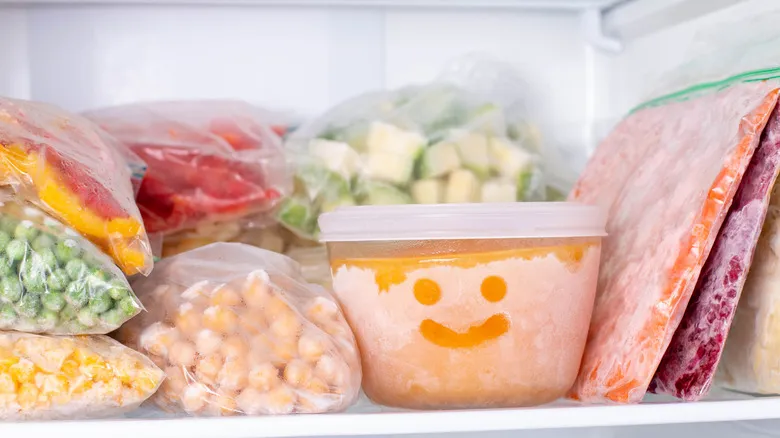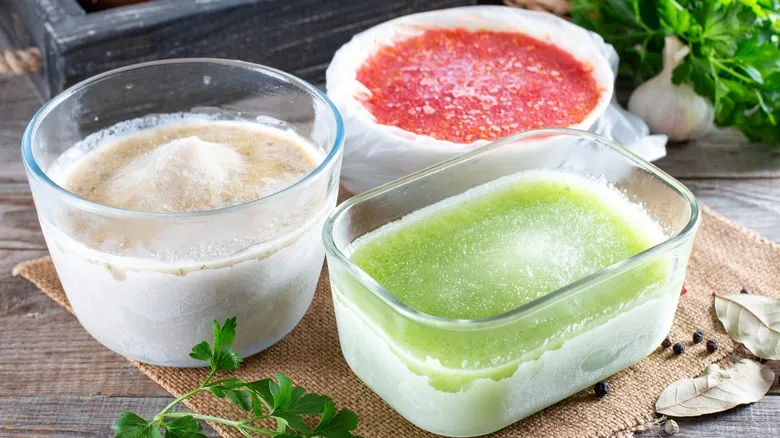The pros and cons of freezing soup

One of the main advantages of freezing your soup is the significantly longer shelf life. While the refrigerator is a good option for those planning to consume it within three to four days, the freezer can preserve your soup for up to three months if stored properly. This gives you ample time to enjoy your servings at your leisure without the pressure to finish it all in one go.
However, the type of soup you choose to freeze can impact its quality. Broth-based soups generally freeze well, but certain recipes may not fare as well after being frozen and reheated, particularly those with creamy textures, like roasted tomato soup. It's also important to be cautious with soups that include dairy, potatoes, pasta, or rice, as these ingredients can become mushy during the freezing and reheating process. For this reason, it's advisable to add such components just before you're ready to eat the soup. Additionally, the ice that forms while freezing may melt back into the soup when reheated, resulting in a diluted flavor.
How to properly freeze and thaw soup

If you choose to store your particular type of soup in the freezer, it's essential to follow proper storage techniques to maximize its shelf life. First, ensure that the soup has completely cooled down before freezing. Once it's chilled, divide the soup into freezer-safe plastic bags or food storage containers. Remember to leave at least an inch of space at the top of the airtight container, as the soup will expand when frozen. Don’t forget to label your container with the date, and then you can place it in the freezer.
Thawing your soup is equally straightforward. Simply take the portion of frozen soup you intend to use from the freezer and let it sit in the refrigerator until it softens, ideally overnight. After that, transfer the soup to a microwave-safe bowl and heat it in half-minute intervals until it reaches your desired temperature. Alternatively, you can heat it on the stove.
Recommended

Should You Freeze Cranberry Sauce?

Carla Hall's Trick To Keeping Brown Sugar From Hardening

Is It Okay To Freeze Leftover Halloween Candy?

How Many Avocados You'll Need To Make Guacamole For A Crowd
Next up

